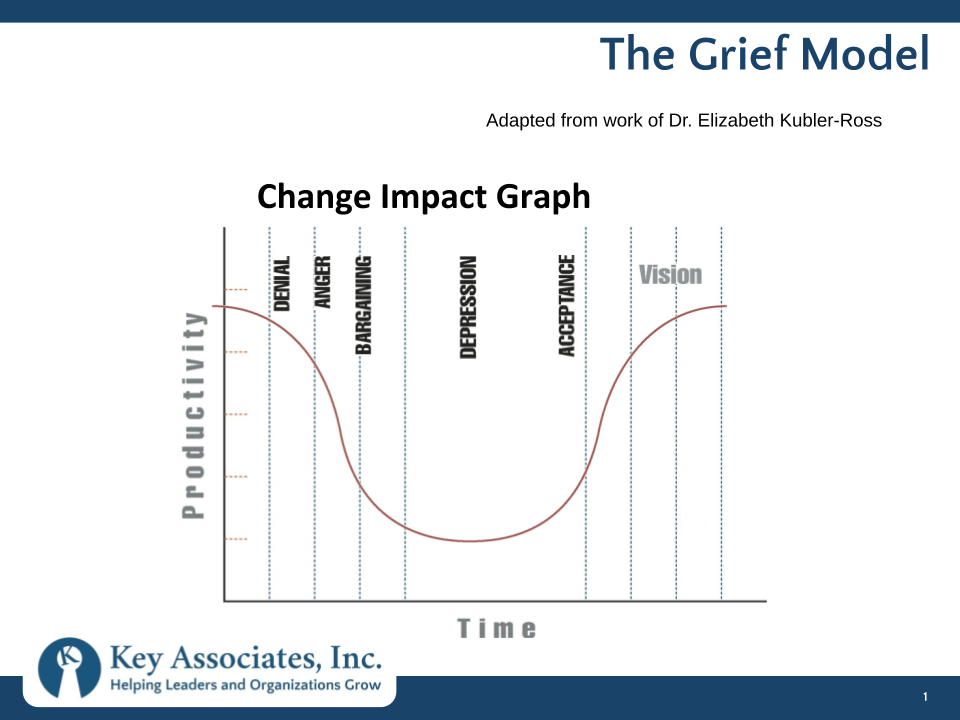The future isn’t predictable right now. We are living in a time of transition and many of us are reeling from the rapid changes occurring. In the roundtable forums I facilitate for business owners and executives, the participants talk about the various responses they observe from employees – some are in denial, others angry, still others depressed and some happy to be working virtually.
One CEO of a manufacturing operation expressed concern last week in our meeting because his once engaged workforce seems to be going through the motions and making “mindless” mistakes along the way. “They don’t want to be accountable,” he added. His view is that employees should feel fortunate they have a job when so many people don’t. When he asks some of his key managers what the pulse of the organization is, they report that some of the employees think he’s fortunate because they are showing up.
Some things aren’t predictable. Human behavior often is. What is the psychology of people’s responses to the pandemic and its effects? How can understanding it help you be a better leader? Dr. Elizabeth Kubler-Ross’ Stages of Grief offers us a good model to help better understand some of the internal changes that we and others may be experiencing.
Kubler-Ross was a Swiss psychiatrist that worked with many dying patients. She based her model on her observations of how the patients and their families responded to grief; she outlines five stages in her now classic book, On Death and Dying. These are:
Stage 1: Denial of the situation – can involve avoidance, confusion, shock or fear
Stage 2: Anger with what’s happening or those seen as responsible – can involve frustration, irritation, anxiety or insubordination
Stage 3: Bargaining or struggling to find the meaning of what is occurring – can involve an urgency to make a deal to resolve things, regret, or guilt
Stage 4: Depression – can involve feeling overwhelmed, helpless, hostility or isolated
Stage 5: Acceptance – can involve calmness or feeling at peace, exploring options, curiosity about what might come next or increased comfort with the unknown.
Although the stages appear linear, people don’t necessarily go through all of them or in the same order. Productivity tends to remain high when a person is in denial and begins to dip if anger sets in. In the bargaining stage, productivity goes down as the person attempts to make deals or exchanges to resolve things and get back to normal. Many organizations furloughing employees may witness the bargaining stage as employees plead to do x, y, and z in order to keep working. Depression is tough to address as it can range from mild and situational to severe and long-term. Depressed people aren’t productive and have a hard time concentrating. At the acceptance stage, people are more willing to accept the “new normal” and even participate in visioning the future.

Take some time to be aware of your own internal response to the crisis. Is it clouding how you communicate and engage with others? If you identified the stage you are in and you are working with someone in a different one, how will you communicate differently? In my next blog, I will discuss some communication strategies to help you enhance your communication during this potentially stressful time.
